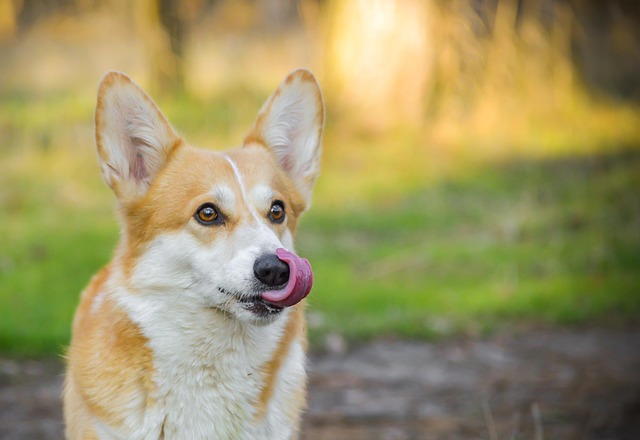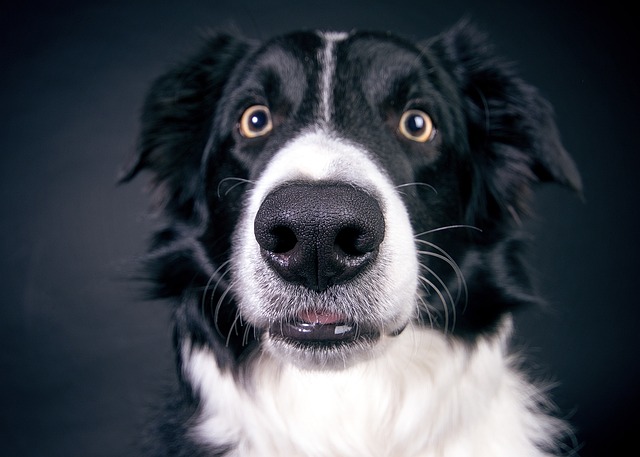
What causes dogs to cough?
A dog's cough always makes the owner's heart tighten, as if he is also worried. Coughing, this seemingly ordinary physiological reaction, hides many possibilities.
Watching the dog scratching its body continuously, rubbing back and forth on the ground, its originally smooth fur becoming messy, and even developing scratches, as the owner, the anxiety and distress in our hearts are beyond words. Dogs can't speak and can only express their physical discomfort in this way, and we are eager to find the best medicine for treating the dog's itching, helping them get rid of the pain and return to a comfortable life. However, there is no "panacea" for treating a dog's itching. The choice of the best medicine needs to be comprehensively judged based on factors such as the cause of the itching and the individual situation of the dog. This not only involves professional pet medical knowledge but also contains our deep love for the dog.
Parasitic infections are one of the common causes of a dog's itching. For different parasites, corresponding drugs are needed for treatment. External parasites such as fleas and ticks can release saliva by biting the dog's skin, causing itching. For these parasites, drugs containing pyrethroids, imidacloprid, fipronil and other ingredients are highly effective. For example, common external deworming drops can be dropped on the dog's skin such as the back of the neck. The medicine can be absorbed through the skin and spread throughout the body, effectively killing fleas and ticks. When using the drops on the dog, seeing it cooperate obediently, we are full of expectation, hoping that these drugs can take effect quickly and that those annoying parasites will no longer torment it. For mite infections, such as scabies mites and demodex mites, drugs like ivermectin and doramectin are commonly used. These drugs usually need to be administered by injection or orally, which can effectively inhibit the growth and reproduction of mites. However, when using drugs like ivermectin, the dosage needs to be strictly controlled because excessive use may damage the dog's nervous system. Every time we give the dog the medicine, we are extremely careful and confirm the dosage repeatedly, for fear of making the slightest mistake, and we only hope that the medicine can expel the mites as soon as possible and make the dog stop itching.
Allergies are also an important factor causing a dog's itching. To treat the itching caused by allergies, antihistamine drugs are a common choice. Antihistamine drugs such as diphenhydramine and loratadine can inhibit the release of histamine in the allergic reaction, thus relieving the itching symptoms. These drugs can be administered orally and are relatively easy to use. When the dog itches due to allergies to pollen, dust mites, etc., after taking the antihistamine drugs, the discomfort can usually be relieved within a certain period. Watching the dog gradually stop scratching frantically and calm down under the effect of the medicine, we feel somewhat relieved. However, antihistamine drugs may have some side effects, such as drowsiness and dry mouth. While feeling sorry for the discomfort caused by the side effects of the medicine, we are also glad that the dog's itching can be relieved. For dogs with severe allergic symptoms, corticosteroid drugs such as prednisolone may also be needed. Such drugs can quickly and effectively inhibit the excessive reaction of the immune system and relieve itching and inflammation. However, corticosteroid drugs cannot be used in large amounts for a long time, otherwise, a series of side effects such as endocrine disorders and decreased immunity may occur. During the use process, we always pay attention to the dog's physical condition and adjust the dosage and course of treatment strictly according to the veterinarian's instructions, only hoping that it can overcome the allergy as soon as possible with the help of the medicine and regain health.

If the dog's itching is caused by skin bacterial infections or fungal infections, antibacterial and antifungal drugs are essential. For bacterial infections, antibiotic drugs containing amoxicillin, cephalosporins and other ingredients can be administered orally or topically to inhibit the growth and reproduction of bacteria, eliminate inflammation, and thus relieve the itching. When we see the dog's red, swollen and itchy skin due to a bacterial infection, carefully applying the antibiotic ointment or giving the antibiotic tablets, we are full of worry and pray that the medicine can take effect quickly and make its skin healthy again. For fungal infections, such as ringworm infections, commonly used drugs include itraconazole, terbinafine, etc. These antifungal drugs can be taken orally or made into ointments for local application. During the treatment of fungal infections, continuous medication is often required for a certain period to ensure the complete elimination of the fungus and prevent recurrence. We patiently accompany the dog, insist on giving the medicine on time every day, and when we see its skin condition gradually improve and the itching decrease, our hearts are filled with hope.
In addition to the drug treatment for the cause mentioned above, some auxiliary drugs and products can also help relieve the dog's itching. For example, pet shampoos containing ingredients such as oats and aloe vera have the effect of soothing the skin and reducing itching. When bathing the dog, using such shampoos can not only clean the skin but also relieve the itching discomfort to a certain extent. There are also some skin protectants, such as vaseline, which can be applied to the dog's itchy and damaged skin to form a protective film, preventing external stimuli and promoting skin healing. When we gently apply these auxiliary products to the dog and see it enjoying the process, our hearts are filled with warmth, hoping that these small actions can make its body feel better.
There is no absolute answer for the best medicine to treat a dog's itching, and accurate selection needs to be made according to the specific situation. Whether it is the deworming medicine against parasites, the antihistamine medicine to relieve allergies, or the antibacterial and antifungal medicine for treating infections, the use of each medicine reflects our concern for the dog's health. During the process of using the medicine, we strictly follow the veterinarian's guidance and closely observe the dog's reaction, because we deeply understand that every use of the medicine is related to its health and happiness. One day, when we see the dog no longer troubled by itching, able to play freely and wag its tail cheerfully, all the efforts we have made to find the appropriate medicine will turn into full comfort and satisfaction. Because in our hearts, the dog's comfort and happiness are worthy of our exploration of every potentially effective medicine with professional knowledge and endless love and the protection of every detail of its life.

A dog's cough always makes the owner's heart tighten, as if he is also worried. Coughing, this seemingly ordinary physiological reaction, hides many possibilities.

Dogs are the most loyal companions of humans, and every subtle change of them touches the heartstrings of their owners. Behind this seemingly ordinary phenomenon, sleepiness, there are often complex reasons.

When the dog at home suddenly makes those rapid and hoarse coughs, it is like a fine needle that instantly hurts the owner's heart. Dogs can't speak, and they can't clearly tell us where they are uncomfortable in their bodies.

When the family dog finally stops suffering from coughing and the worrying wheezing ceases, many owners can finally breathe a sigh of relief. Watching the dog become lively again is heartwarming, but a crucial question arises:

In the morning, the usually energetic dog lies in its nest with a drooping head and occasionally sneezes, releasing clear nasal water.

When the dog that accompanies you day and night suddenly stops jumping to the food bowl as usual, and even trembles uncontrollably, every owner's heart will tighten instantly.